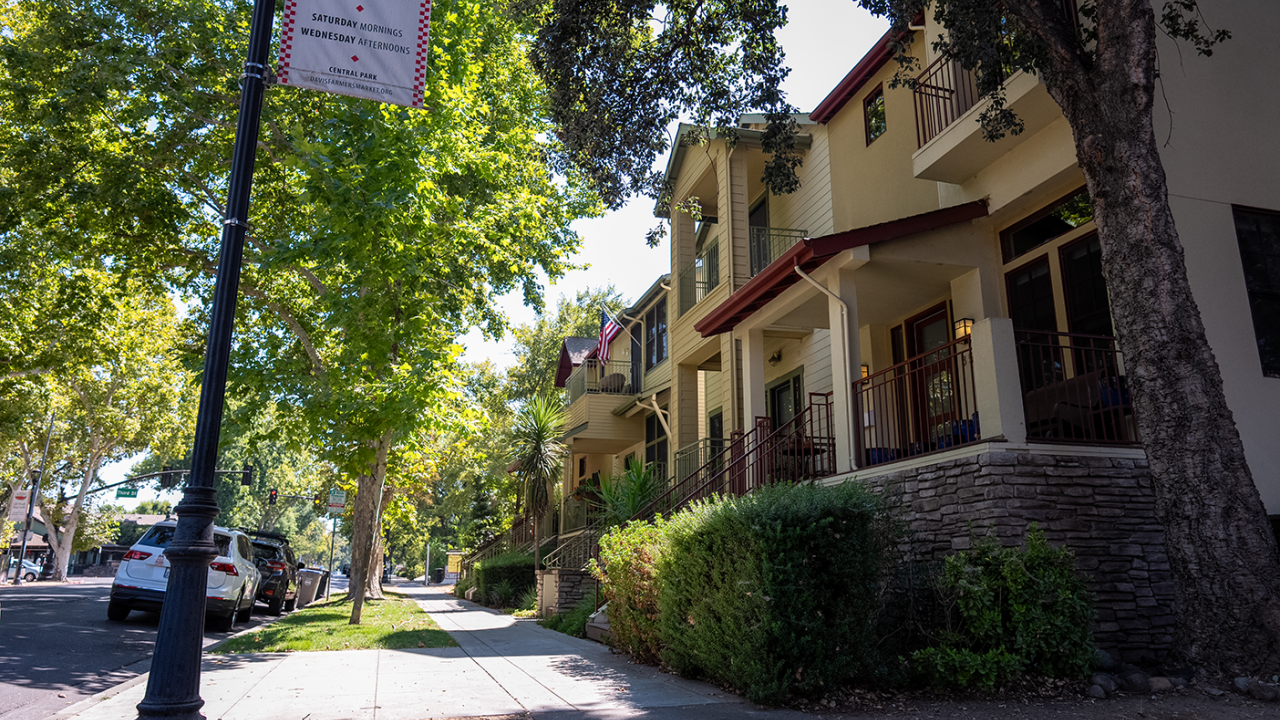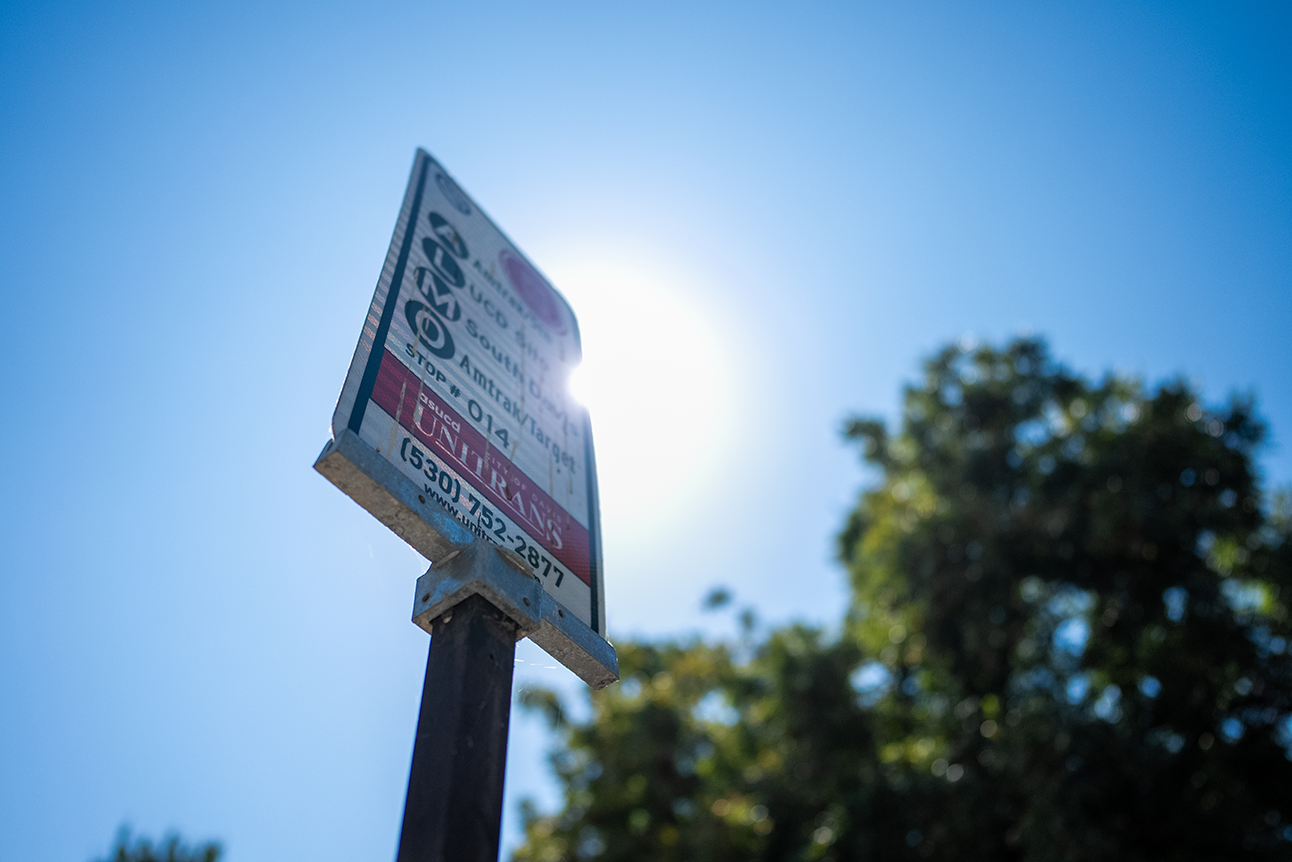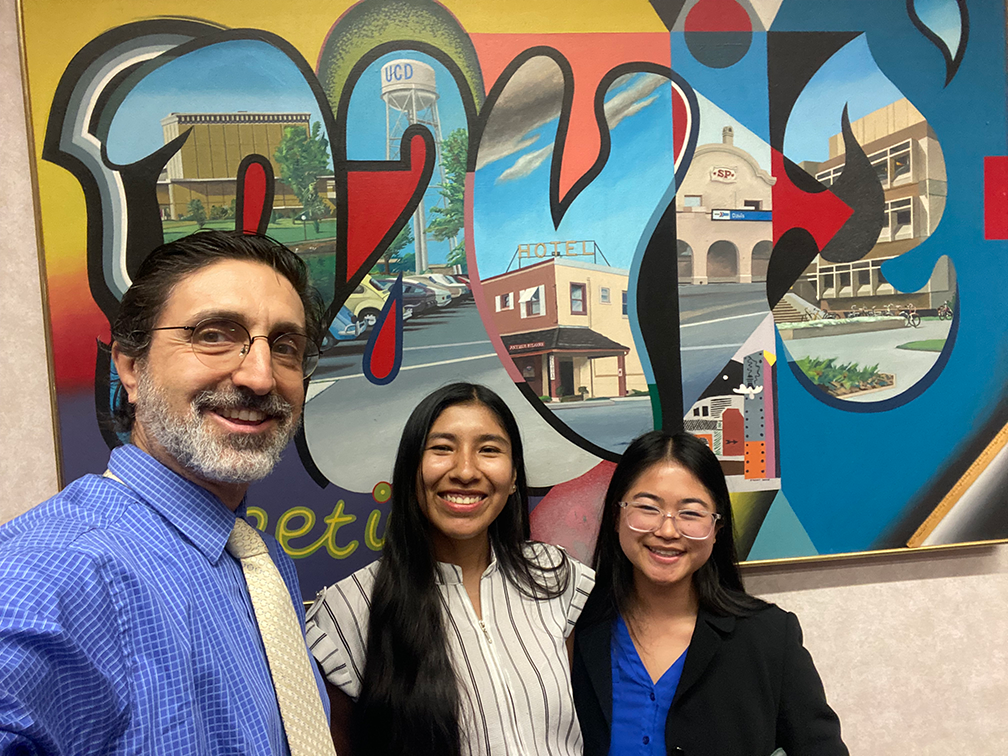
Students Listen, Learn and Lead on Environmental Justice in Davis
In a cozy college town known for bikes and farmers markets, a group of UC Davis students spent their spring and summer doing work beyond the classroom. They immersed themselves in the stories of people in Davis who often go unheard: farmworkers, immigrants, people facing housing challenges and more. As part of a course on environmental justice, they turned those conversations into recommendations for the city’s long-term planning efforts.
The students were part of CRD 149: Environmental Justice and Community Development, an upper-division course taught by Community and Regional Development Professor Jonathon London. This year, he redesigned it as a project-based class and teamed up with the City of Davis through a grant from UC Davis Global Affairs to support the UN Sustainable Development Goals, big-picture targets focused on improving life and the environment. Their assignment was to help design environmental justice elements for the city’s updated General Plan, a blueprint for how Davis will develop and support its community for years to come.
“I found students to be knowledgeable, and very much committed and enthusiastic about environmental justice because it’s the crisis of their time,” London said. “I believe that the course gave them a sense of both the urgency of the issue, as well as the language to understand it and the potential ways to be leaders in changing the conditions.”

Gathering stories and data
Students approached the project from different angles. One set of teams led 16 focus groups and surveys with farmworkers, Chinese-speaking immigrants, Native people, individuals experiencing homelessness, people with disabilities and students. Others analyzed data to map environmental justice challenges in Davis. Another group researched how other cities in California are addressing community issues by using the California General Plan Database Mapping Tool developed by UC Davis researchers.
Helping to guide students was Lupe Franco, a Ph.D. candidate in the Geography Graduate Group and teaching assistant for the course. She emphasized the heart behind the work.
“It's about how can we make sure that we are taking into perspective the lives of the community, because that’s what is on the line here," Franco said.
Students like José Lopez Garcia, a Master of Public Health candidate, appreciated the hands-on approach and found working with focus groups especially meaningful. He enjoyed the chance to connect directly with farmworkers and hearing their personal stories.
“You can learn a lot from a class, from a lecture, but until you talk to people in real life, that’s when you realize the impact and the importance of addressing the disparities that exist,” he said. “It’s very exciting to just know that our combined effort will have an impact in Davis.”

Partnering with city experts
Cities often hire consulting firms to lead projects like updating their General Plans, and in this case, students worked alongside the professionals. They interacted with consulting firm Raimi + Associates, lead consultant for updating Davis’ General Plan. The students brought unique strengths to the table, including fluency in Spanish and Chinese.
Jingyi Qian, a junior majoring in community and regional development and a native of Nanjing, China, helped research and translate survey questions for a focus group composed of Chinese Americans, including those who work at churches and restaurants in town. By talking with them, she learned that some struggle with late night transportation needs.
“People have different needs like affordable housing, transportation, air and water pollution, and I think this experience helped me to better understand the concerns of the community members,” said Qian. “For example, restaurant workers had difficulty finding housing; most of the housing is far away from the restaurants and their workplace. And transportation was a concern; they find the system is limited when they work at night.”
Throughout the course, guest speakers offered insights and encouragement. Former Davis Mayor Robb Davis, who is currently assistant director of housing resources for the UC Davis Aggie Compass Basic Needs Center, remains active in community work around public health and housing. He shared the inside workings of local government and praised how well the students understood that part of their job was to listen to voices that aren’t always heard.
“I think any student who either participated directly in the focus groups or gained a deeper understanding of community voices, I want them to take that with them, and when they’re in their community, push their city council or whoever it is, to do that more comprehensive kind of outreach,” Davis said. “Seek out and listen to alternative voices that aren’t typically listened to.”
The students first presented their research and recommendations in June during their final class session, sharing their work with city staff, campus leadership and the consulting team. They also presented their work during the August Davis City Council meeting – sharing what they learned, what they heard and what the city might consider as it moves forward (watch meeting here).
“The students brought energy, brilliant ideas and their own lived experience to the project,” said Davis Mayor Bapu Vaitla. “Their combination of head and heart – caring deeply about all people in this community, especially those whose voices are often unheard, while carrying out rigorous social scientific research – exemplifies the best of Davis. These kinds of collaborations between the University and the City are very powerful, and I’m looking forward to continuing our work together.”
London is working with a team of students to produce a formal set of products for the city to use in its General Plan update, which includes goals, policies and recommended actions to grow a healthy and equitable Davis community. He also plans to share the class work online.
“I think they did an amazing job,” London said. “This was very challenging. It’s ten weeks of work to go from learning about environmental justice, about planning, about conducting applied research, and then implementing it and creating a product of professional quality.”

Building skills and confidence
The experience built both skills and confidence for students, especially in areas like intercultural communication, conflict resolution and project management. Qian said those skills will be valuable during her academic journey and beyond.
“This was my first time to make a presentation with so many guests, but I think it’s a good experience for my future studies because I practiced public speaking, and this experience improved my confidence,” Qian said.
Another outcome of the course is a resource that could reach far beyond Davis. London is putting together a curriculum for teaching environmental justice in local planning that will be shared through the Sustainable Development Solutions Network, a global initiative based at Columbia University.
As for the small town of Davis, making sure people’s lives and voices are part of the plan, can lead to lasting change.
“I just want people to care and have love for each other, and I know that Davis can be the place where that happens,” Franco said.
Media Resources
- Jonathan London, Department of Human Ecology, jklondon@ucdavis.edu
- Lupe Franco, Department of Human Ecology, gmfranco@ucdavis.edu
- Tiffany Dobbyn, College of Agricultural and Environmental Sciences, tadobbyn@ucdavis.edu